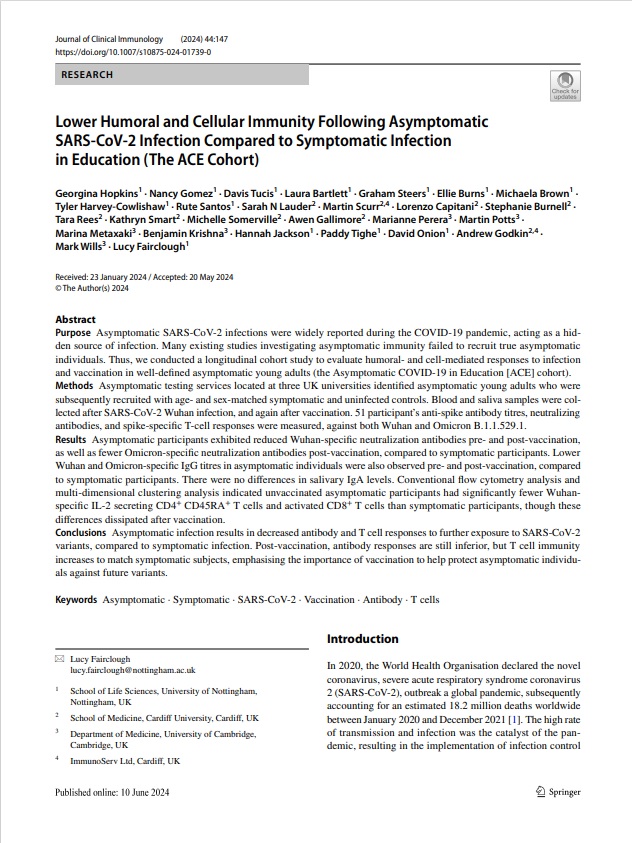A longitudinal study examining immune responses in individuals with asymptomatic and symptomatic SARS-CoV2 infection (ImmuoAsySym)
Study code
NBR114
Lead researcher
Dr Mark Wills
Study type
Participant re-contact
Institution or company
Department of Medicine, University of Cambridge
Researcher type
Academic
Speciality area
Infection, COVID

Summary
|
It is becoming increasingly clear that some people can have COVID19 but show no symptoms of the disease (asymptomatic infection) while others feel unwell and have a number of symptoms. Why this is the case is unknown, but a critical difference could be the type of immune responses people mount to this virus infection. The University of Cambridge has an extensive weekly COVID19 PCR testing programme offered to its students; this provides researchers with a unique opportunity to identify asymptomatic COVID19 positive people. Using blood from both asymptomatic as well as symptomatic people, we will be able measure their immune responses to the virus (such as antibody responses as well as a variety of other important immune cells). It is hoped that a better understanding of this difference will help our understanding of what responses are protective and why some people become unwell. Participation: For this study we had 239 participants from the COVID-19 BioResource take part by providing a blood sample and completing a health & lifestyle questionnaire. Organisation: This study is organised by Dr Mark Wills at the Department of Medicine, University of Cambridge |
Research Publication
Hopkins, G., Gomez, N., Tucis, D. et al. Lower Humoral and Cellular Immunity Following Asymptomatic SARS-CoV-2 Infection Compared to Symptomatic Infection in Education (The ACE Cohort). J Clin Immunol 44, 147 (2024). (Link)
Main Findings
Asymptomatic infection results in decreased antibody and T cell responses to further exposure to SARS-CoV-2 variants, compared to symptomatic infection. Post-vaccination, antibody responses are still inferior, but T cell immunity increases to match symptomatic subjects, emphasising the importance of vaccination to help protect asymptomatic individuals against future variants.
